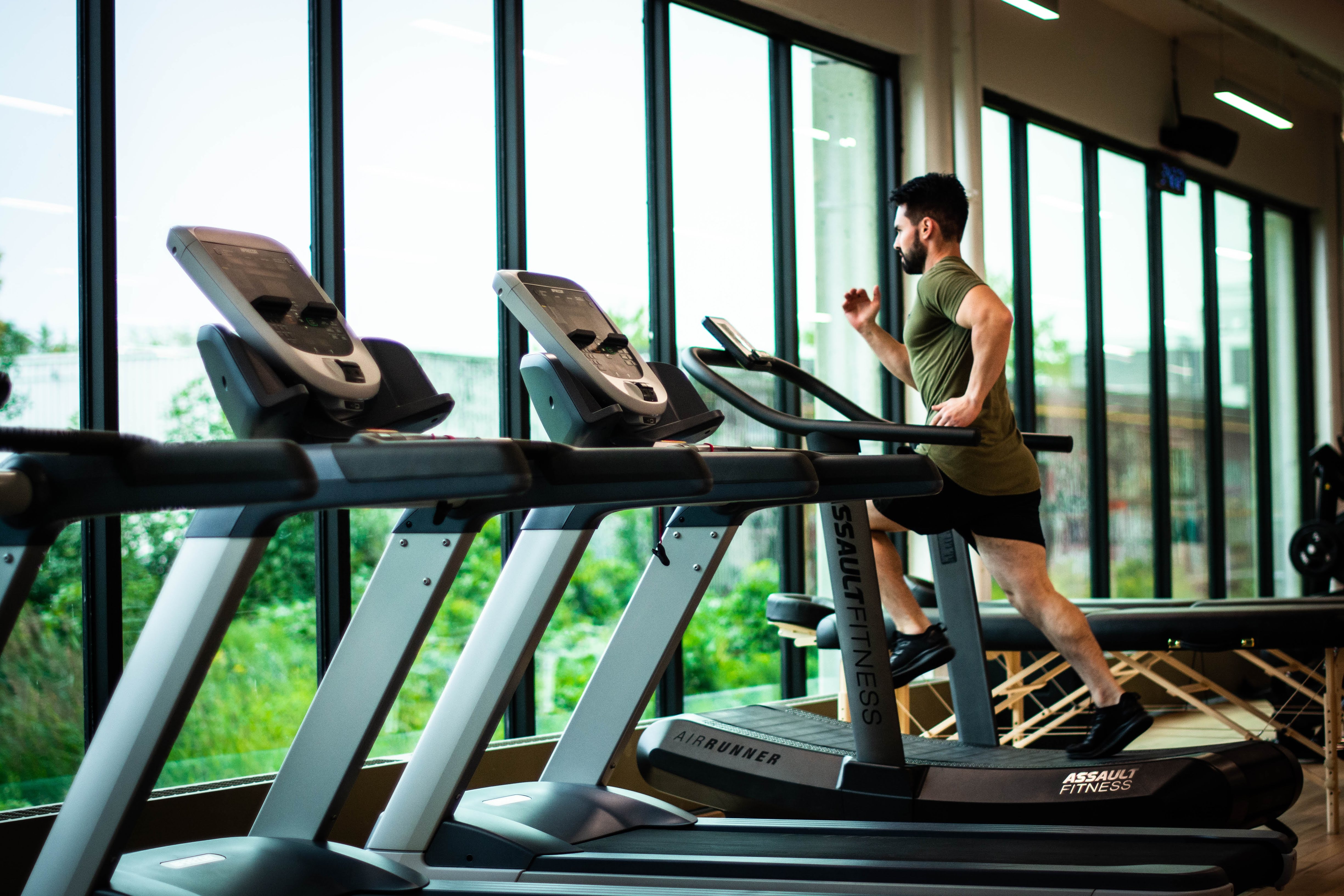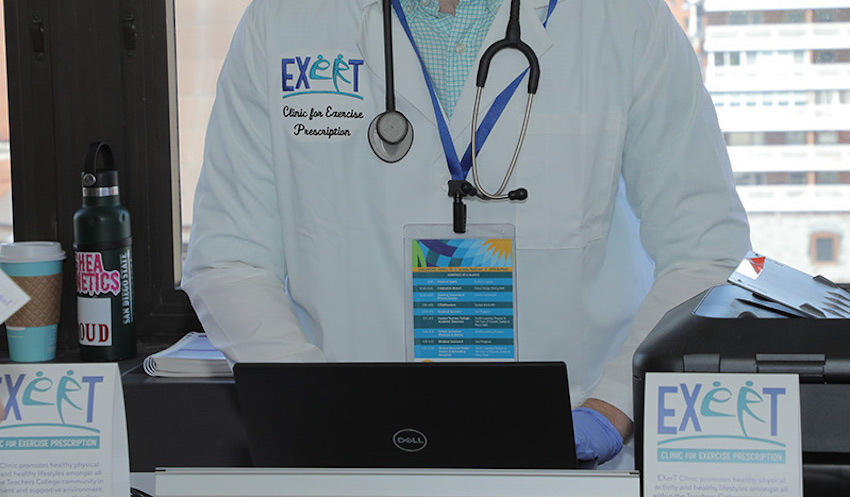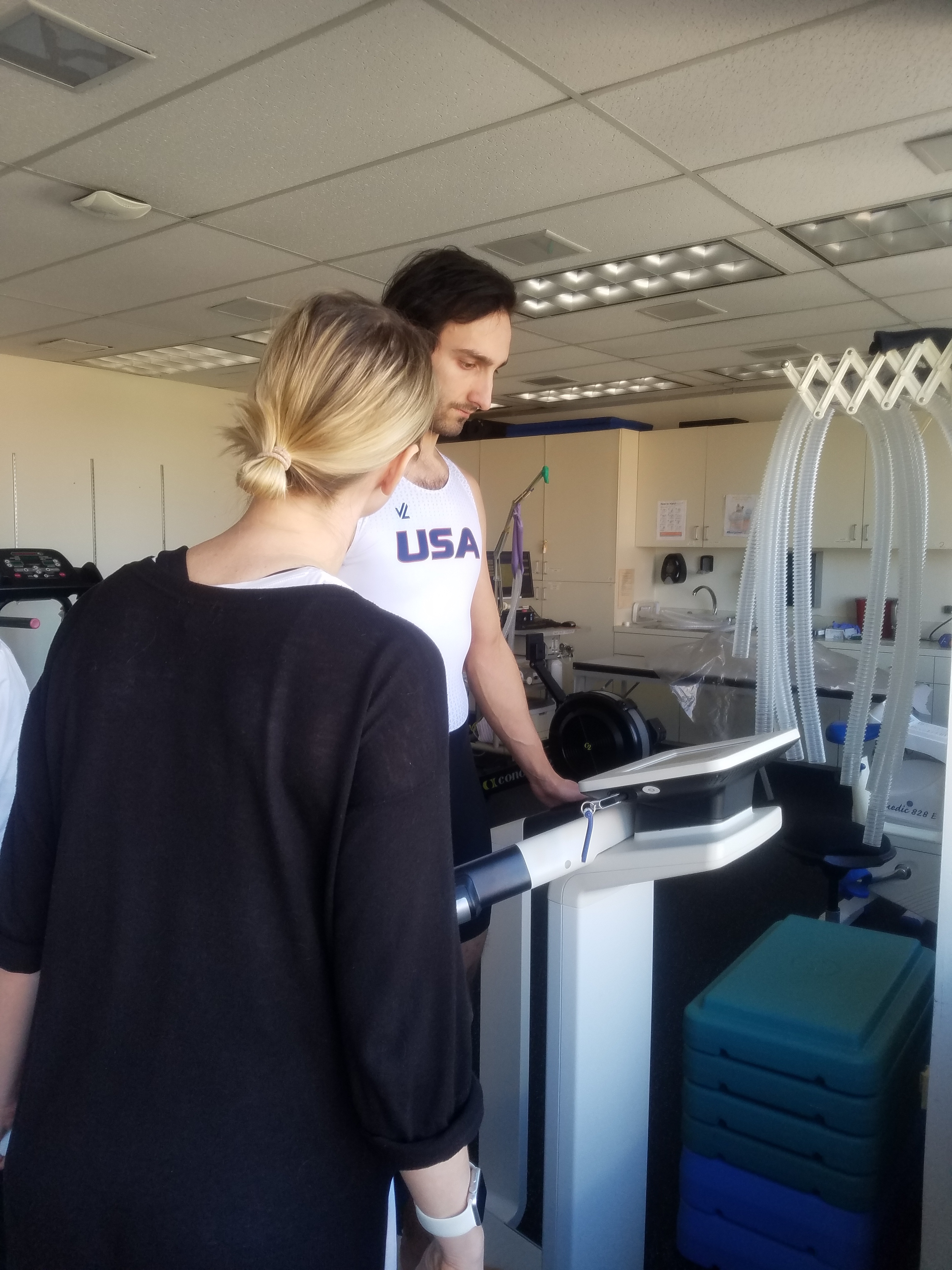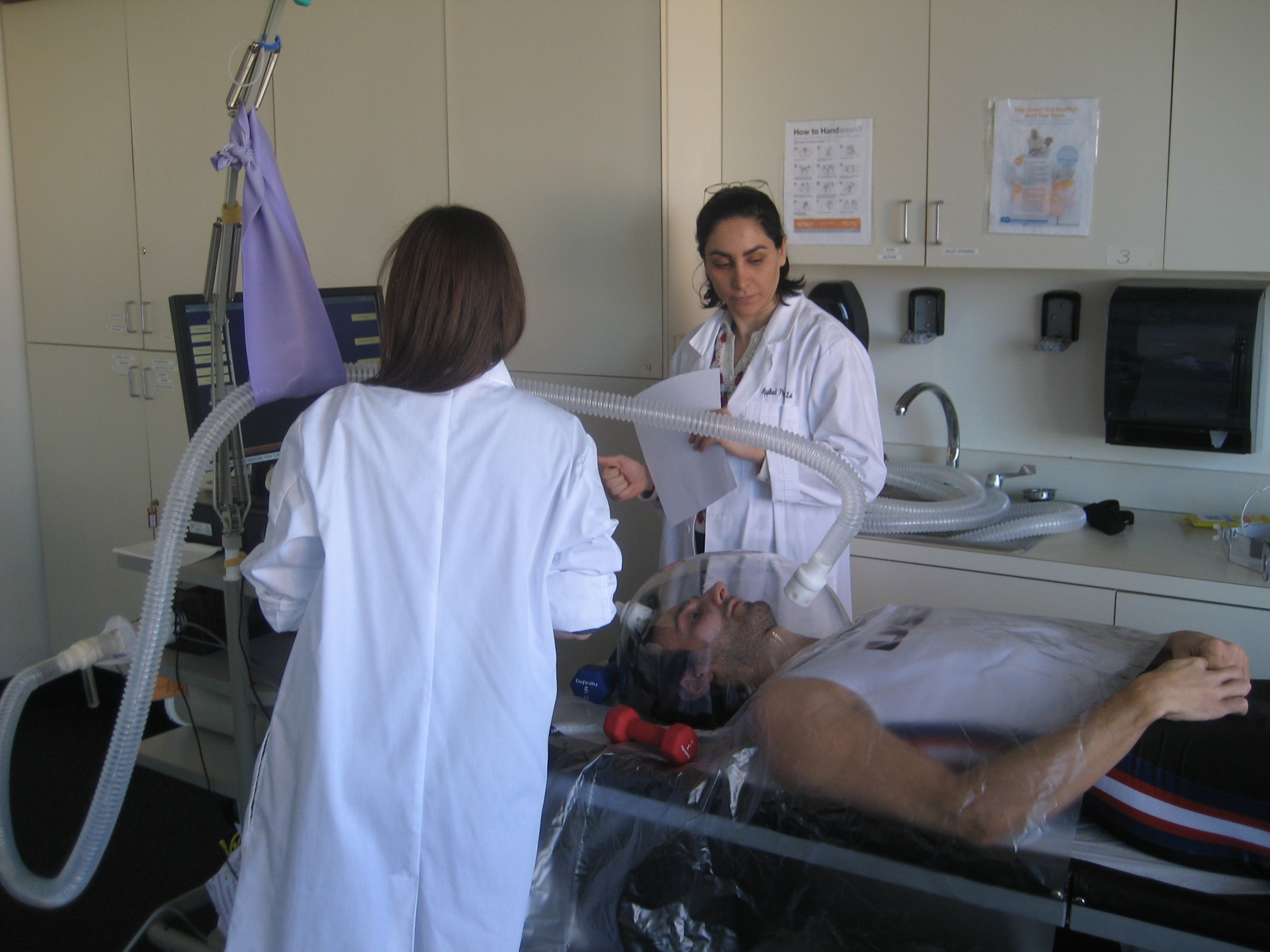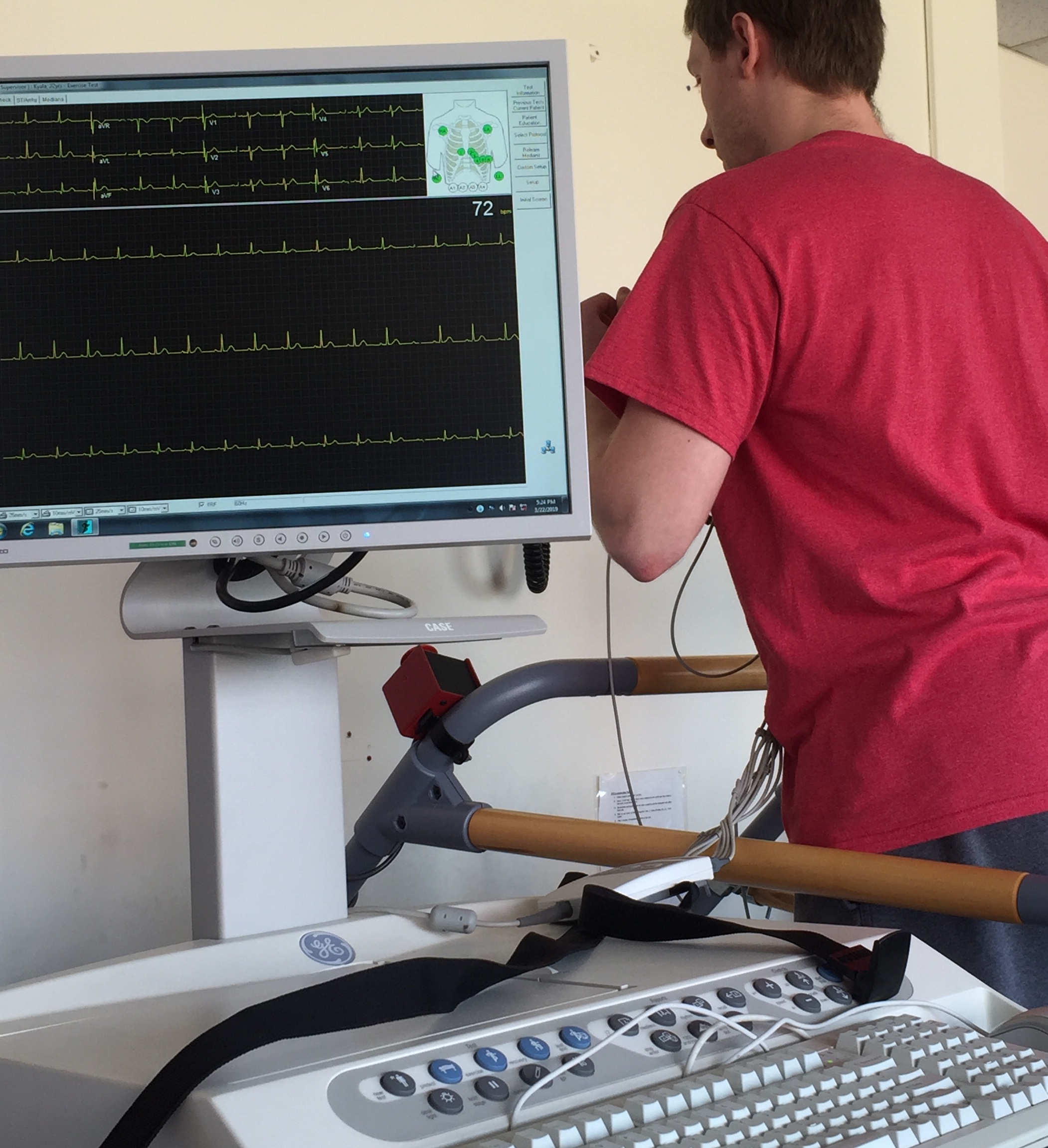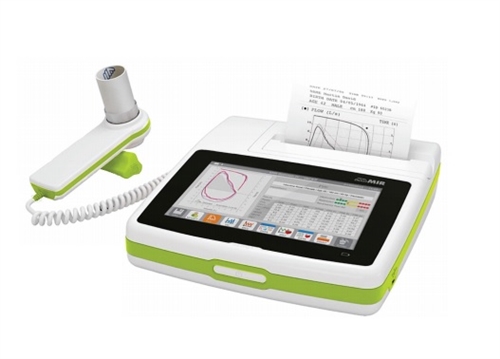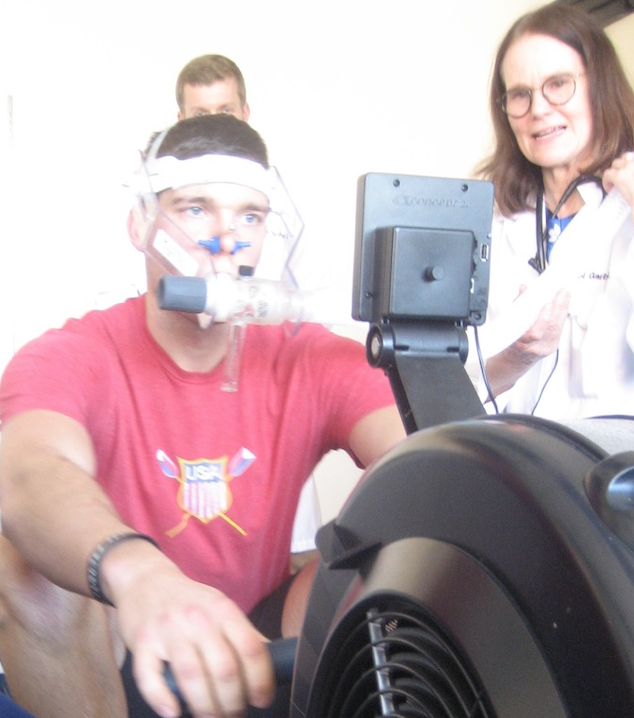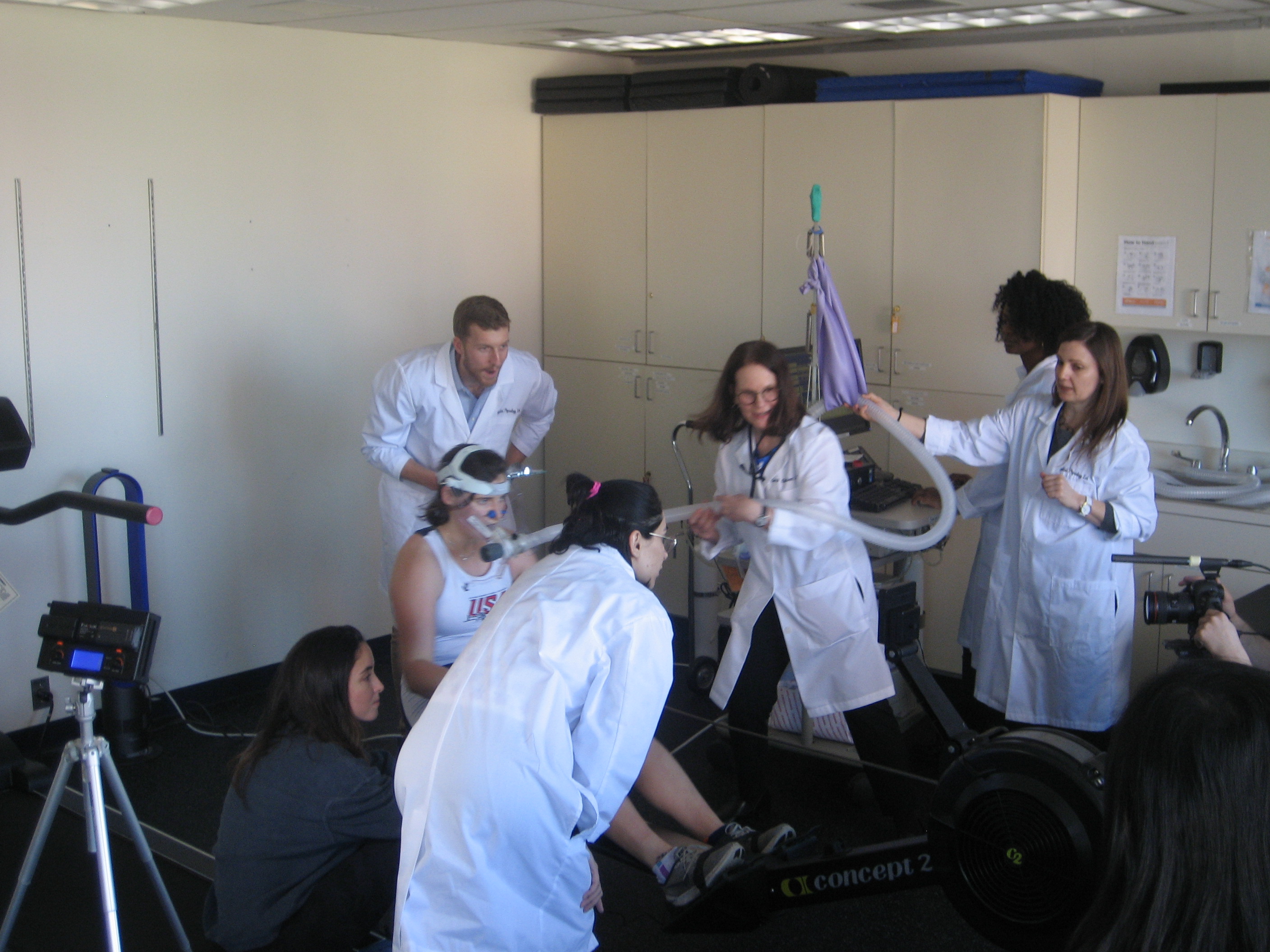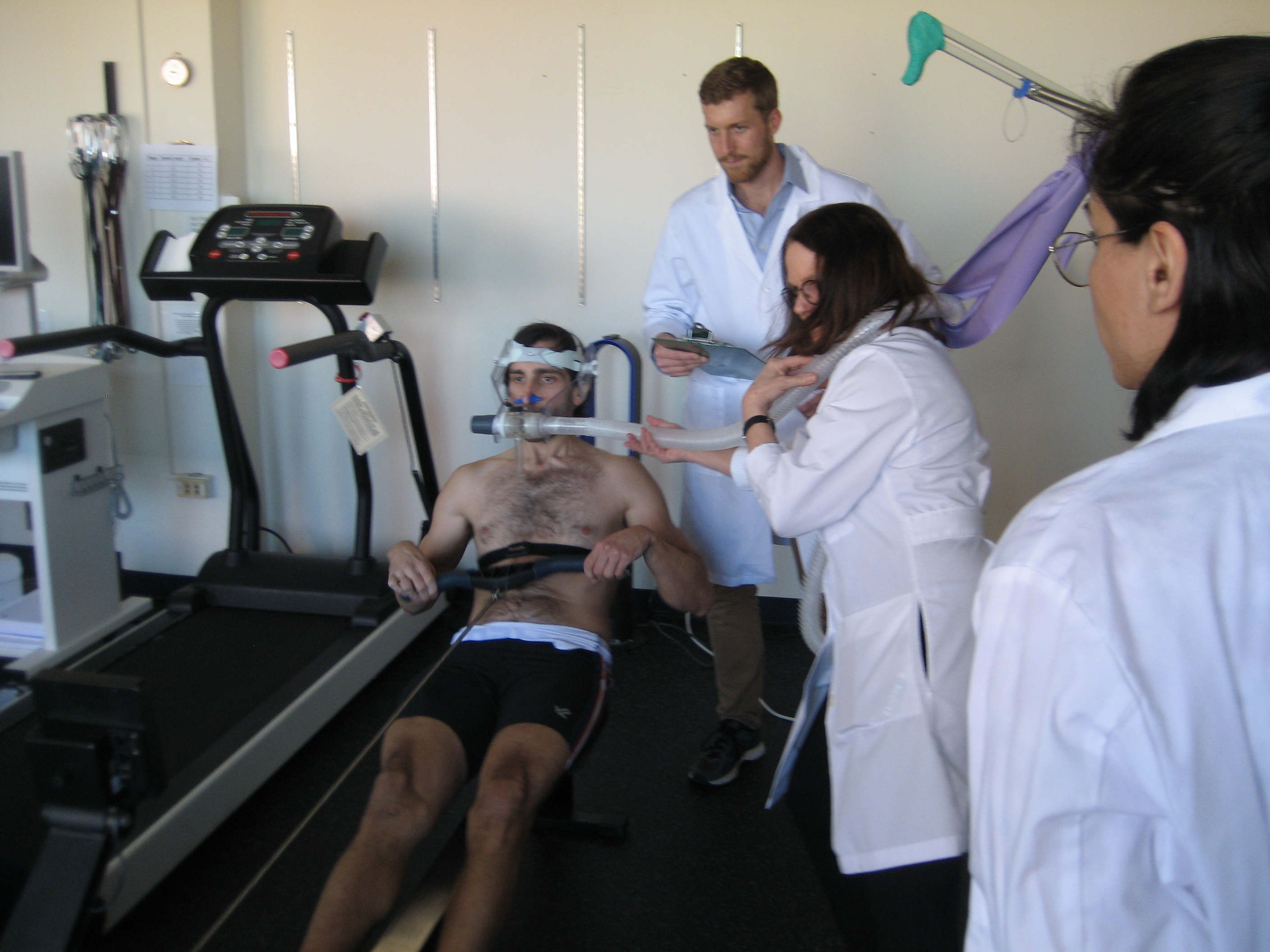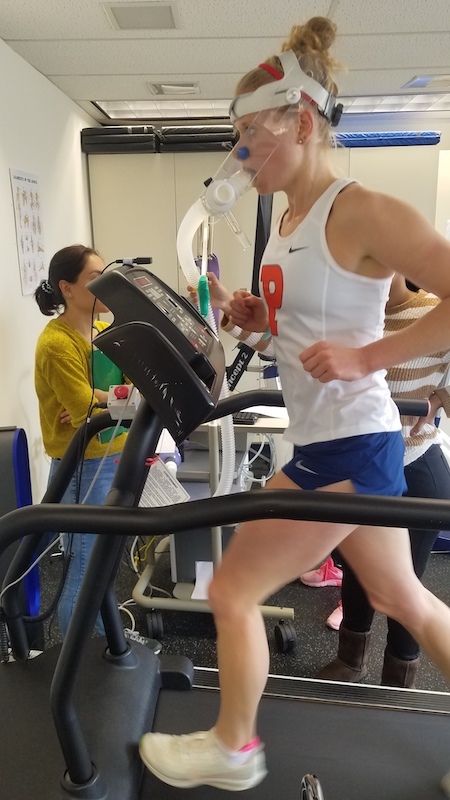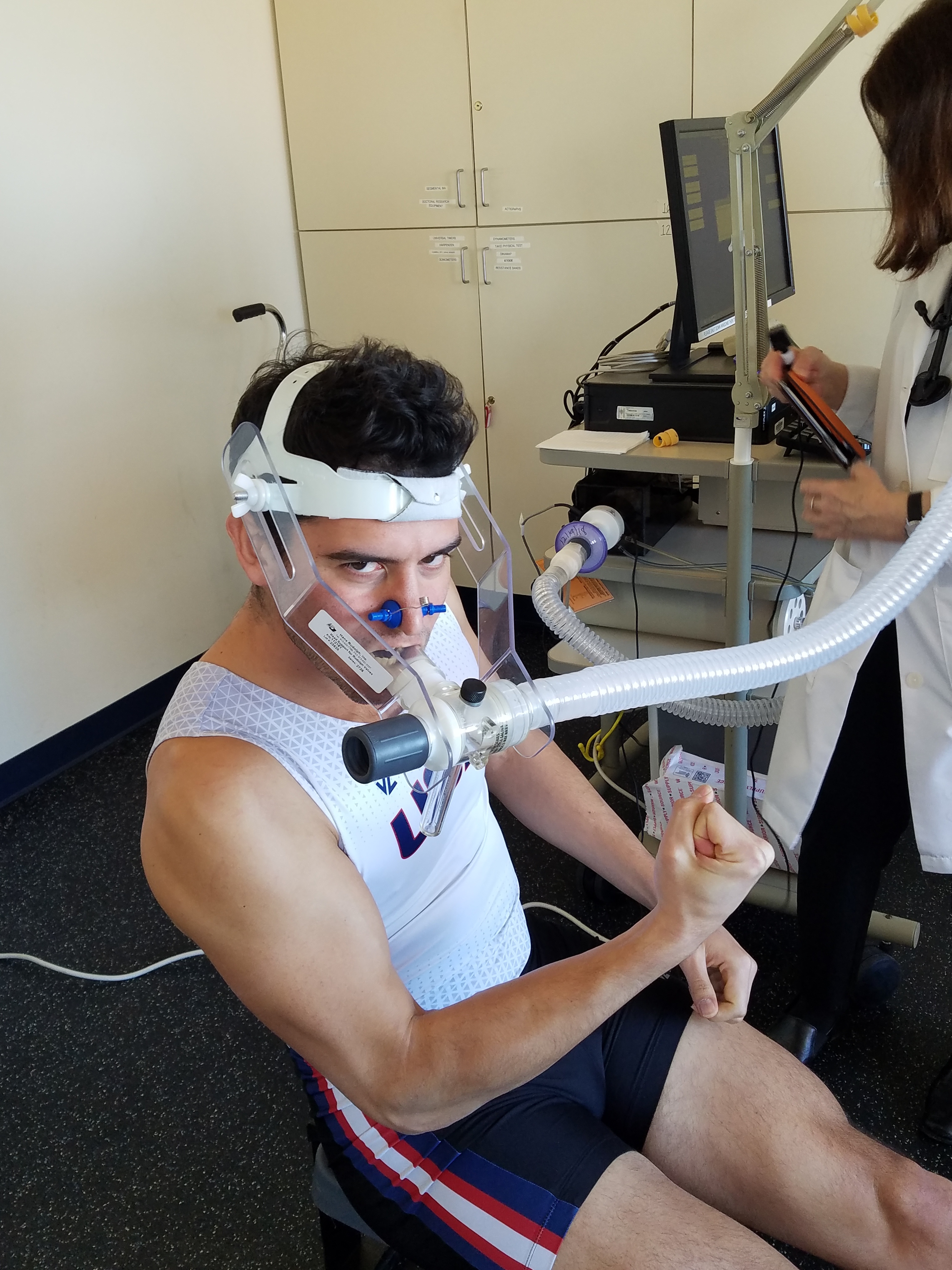Our Service Offerings
Your Exercise Prescription is Ready for Pick Up at EXerT Clinic!
Our trained staff is prepared to create a personal and individualized exercise program, tailored to your health and fitness goals.
Why see a Registered Dietitian?
- Comprehensive nutrition assessments using medical nutrition therapy
- Disease specific interventions and education (ex. Diabetes, Congestive Heart Failure, Renal Disease, etc)
- Weight loss/Weight gain assessments
- Menu and meal planning (budget/family friendly)
- Accountability, Monitoring, and Support through continued follow-up assessments
- Individualized Goals
Nutrition Counseling Services
What to expect?
To create a successful individualized plan, our Registered Dietitian will complete a thorough assessment which includes the patient’s dietary habits, medical history, and future goals. While working as a team, the Registered Dietitian and patient will discuss potential challenges, preferences, and needs to empower and make long-lasting changes. Using evidenced-based practice, our Registered Dietitian will counsel patients on behavioral and lifestyle changes to help achieve their goals. Patients may also discuss other services provided in the Exert Clinic with the Registered Dietitian, such as resting metabolic rate, to determine appropriate food options for the patient’s goals.
During nutrition assessments, work alongside a Registered Dietitian to review your dietary habits and develop personalized goals to make life long changes.
Nutrition Services Available in Spanish/Servicios de Nutrición Disponibles en Español
What exactly is body composition analysis?
Body composition analysis is a method of describing what your body is made of. Your body is made up of fat mass and fat-free mass. Fat-free body mass includes your internal organs, muscles, bones, connective tissues, and water.
Get Your Medical Body Composition Analysis Test At The EXerT Clinic!
Why is it important?
We all have heard about Body Mass Index (BMI). BMI is a screening tool that can measure a person's body fat based on height and weight, and it can indicate whether they have a healthy weight, are underweight, or have excess weight. According to the Centers of Disease Control and Prevention (CDC), while BMI can be used to categorize people into risk groups that may lead to health issues, it is not an accurate tool for measuring fat or assessing health of an individual, because it does not provide us detailed information on what body weight is composed of.
The medical Body Composition Analyzer (mBCA) breaks down weight into fat mass, fat-free mass, total body water (including water in and outside of cells).
Why should you get your BCA test at the EXerT Clinic?
- We use the most comprehensive, cutting-edge body composition device on the market!
- It only takes a few minutes
- We monitor your weight, fat and fat-free mass and total body water
- We provide you with an in-depth analysis and an easy to read interpretention
What exactly is Resting Metabolic Rate (RMR) test?
Resting Metabolic Rate (RMR) testing allows you to find out how many calories your body burns at complete rest in order to perform the most basic functions such as maintaining respiration, circulation, body temperature, muscular activity and the other functions of the body.
Resting metabolic rate changes based on your gender, body size, and your diet; It also accounts for a great percentage of the total number of calories you burn each day known as total daily energy expenditure (TDEE).
Get Your Resting Metabolic Rate (RMR) Test At the EXerT Clinic!
What to expect?
You should avoid eating or exercising for at least 3-4 hours before the test. When you arrive at our clinic, you will be asked to sit in a relaxed position and we will be taking your resting blood pressure, and heart rate. Then, you will be lying down on your back for about 30 minutes, and a clear hood will be placed over your head which allows for measuring the amount of oxygen and carbon dioxide that you inhale and exhale.
You will leave our lab with an accurate sense of how many calories you need each day which can be helpful to design a weight loss plan, or to optimize your training program.
Why should you get your RMR test at the EXerT Clinic?
- We use state-of-the-art technology (Parvo System) to measure the number of calories your body naturaly burns.
- It is easy and only take about 30 minutes
- We monitor your calorie profile (how much fat, carbs, or protein you burn).
- We help you optimize your weight management program.
What is Exercise Electrocardiography test?
An exercise electrocardiogram is an in-clinic exam used to measure the heart's response to physical exertion. Sometimes cardiac abnormalities can be detected only during exercise, that is why this test is sometimes called a "cardiac stress test". During an exercise ECG, you may either walk or jog on a treadmill, or pedal a stationary cycle ergometer.
Get Your Resting and Exercise Electrocardiography Test At the EXerT Clinic!
What to expect?
- Try to arrive 30 minutes in advance of your appointment so we can prepare you for the testing.
- While the exercise ECG test takes only around 10 to 15 minutes, it requires preparation and time to cool down, and interpretation of your results.
- Wear a pair of comfortable walking shoes, and a loose outfit for your test.
- You should be prepared to remove your shirt so that the ECG electrodes can be attached to your chest.
- You should not be eating, drinking or smoking at least 24 hours before your test.
- Shave your chest if necessary, so that the electrodes stick to your skin.
Why should you get your ECG test at the EXerT Clinic?
- We determine your limitations for safe exercising before starting a cardiac rehab program.
- We assess your heart rhythm and electrical activity during exercise
- We evaluate your heart rate and blood pressure during exercise
- our certified professionals provide you with an optimized and personalized exercise prescription for your cardiac rehab program.
What exactly is a Pulmonary Function Test (PFT)?
A Pulmonary Function Test (PFT) is a non-invasive way to measure lung function. It is a safe test for most people and takes a very short amount of time to complete. The results from a PFT are used to diagnose types of lung diseases, such as Obstructive and Restrictive lung diseases, as well as common airway issues including asthma.
Get Your Pulmonary Function Test At The EXerT Clinic!
What to expect?
- You should wear comfortable loose-fitting clothing
- Please continue to take all prescribed medication unless directed to stop by a physician
- You will be asked to sit in a chair, while wearing a nose clip
- You will be instructed to breathe through a mouthpiece
- The test consists of taking a deep breath in followed by a quick and forceful breath out
- The test is over in less than a minute
- You may be asked to repeat the test to check for consistency
Why should you get your Pulmonary Function tested at the EXerT Clinic?
- To learn about your lung health
- It's a very quick and simple test
- You can take your results to your physician to discuss and treatments
- To learn about other variables that may be limiting your exercise capacity
What Exactly is Sub-maximal Exercise test?
Submaximal exercise is designed to provide an estimate for your body's capacity for exercise, without having to increase your heart rate as high as a maximal exercise test would. This type of exercise test is beneficial for any type of athlete, and for those who are unable to complete a maximal exercise test.
Get Your Sub-Maximal Exercise Test at EXerT Clinic!
What to expect?
Upon your arrival, you will be asked to sit in a relaxed position, and we will be taking your resting blood pressure, and heart rate. We will place electrodes on your chest to measure your heart rate during the test. You may either be tested on a treadmill, or a stationary cycle ergometer. Both pieces of equipment can be programmed for incremental load and speeds.
- Wear a pair of comfortable walking shoes, and a loose outfit for your test.
- You should not be eating, drinking or smoking at least 24 hours before your test.
- You may also need to bring your medical records and any medications you are taking.
Why should you get your Sub-maximal Exercise test at the EXerT Clinic?
- We use the most comprehensive, cutting-edge devices on the market!
- It only takes a few minutes
- We assess your cardiovascular health and measure your aerobic fitness.
- Our certified health professionals will administer the test and interpret the results.
- Our trained fitness professionals can use the test information as a means for prescribing fitness programs.
What exactly is maximal exercise (VO2 Max) test?
Maximal exercise testing is currently the gold standard for determining your exercise capacity and is one of the best indicators of aerobic and cardiorespiratory fitness.
Poor cardiorespiratory fitness level is associated with an increased risk for chronic illnesses, such as obesity, diabetes, hypertension, and cardiovascular health. Conversely, higher cardiorespiratory fitness level reduces the likelihood of developing chronic illnesses. This test can be particularly useful for establishing a baseline before beginning an exercise regimen.
Get Your Maximal Exercise (VO2Max) Test at EXerT Clinic!
What to expect?
- Wear a pair of comfortable running shoes, and a loose outfit for your test.
- You should not be eating, drinking or smoking at least 3-4 hours before your test.
- You will be running on a treadmill or cycling on a cycle ergometer, depending on your preferred exercise.
- You will be asked to wear a headgear and a mouthpiece that will measure the volume of your inspired and expired air.
- The test involves exercising at increasing intensity until exhaustion.
- The test takes somewhere between 8 and 15 minutes.
- Make sure you’re properly hydrated before the evaluation.
Why should you get your VO2Max test at the EXerT Clinic?
- By understanding your VO2 Max and current fitness level, you can set realistic fitness goals.
- Our certified professionals can help you identify your max heart rate and VO2 max and understand how fit you really are.
- Our certified professionals can help you to sustain your exercise more effectively and efficiently by knowing when and at what point you hit your VO2 max or anaerobic threshold.
What Exactly is Anaerobic Exercise test?
Anaerobic exercise tests are utilized to test both the anaerobic power and anaerobic capacity. The most popular example of this type of testing is the Wingate Test, which involves all-out pedaling on a stationary cycle ergometer against a specified resistance.
Get Your Anaerobic Exercise Test at EXerT Clinic!
What to expect?
Upon your arrival, will take your resting blood pressure, and heart rate. Then, you will perform a low-resistance warm-up for at least five minutes, which consists of two or three 15 second fast pedaling to ensure that you are used to the movement before the test begins. The test itself involves pedaling against a set resistance, as fast as you can for 30 seconds. You will finish your test by cooling down using minimal to low resistance.
Why should you get your Sub-maximal Exercise test at the EXerT Clinic?
- We use the most cutting-edge Wingate testing ergometer (Monark 894E) on the market!
- It only takes 30 seconds!
- Our certified Exercise professionals can use your test results to optimize your exercise program.
What exactly is the Fat-Max Test?
This test is a multi-stage exercise test that was designed to evaluate your metabolism during exercise, specifically, how your body uses carbohydrates and fats to produce energy. By measuring how your body responds to moderate intensity exercise, we can determine the perfect range of heart rate for you to target in order to focus on burning fat.
Get Your Fat Max Test at Exert Clinic!
What to expect?
- You should not be eating, drinking or smoking at least 3-4 hours before your test.
- You will be tested on either a bike or treadmill.
- The test will last between 20-45 minutes, depending on fitness level.
- You will be asked to wear headgear and a mouthpiece to measure the volume of inspired and expired air.
- Make sure you are properly hydrated before testing.
Why should you get your Fat-Max Test done at the EXerT Clinic?
- By finding your ideal fat burning range, you can optimize your training or weight loss programs.
- This test needs specialized equipment and trained personnel in order to conduct an accurate test.
- Our certified professionals will help you a fitness plan using these test results.
Link to developer, Asker Jeukendrup
What exactly is a Continuous Work Rate Test?
This purpose of this test is determining how your body utilizes energy sources during a longer duration exercise. During this test, you will work at one continuous work rate, and there are no increases in resistance or intensity.
Get Your Continuous Work Rate Test at ExerT Clinic!
What to expect?
- This test will last approximately one hour (60 min) and will usually be completed on a cycle ergometer.
- You will be asked to wear headgear and a mouthpiece to measure the volume of inspired and expired air.
Why get your Continuous Work Rate Test done at the EXerT Clinic?
- With this information, our trained professionals can help you design an exercise program to maximize your training efficiency
- You can set realistic fitness goals for the future, and target dates for competitions
